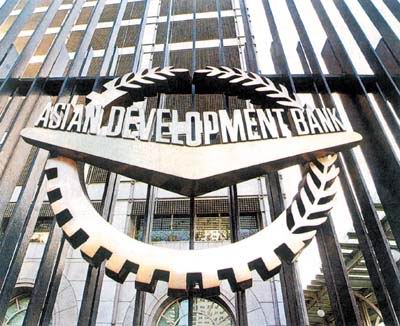ADB: Regional integration to contribute to increased trade, investments, jobs

By Gulgiz Dadashova
Oil’s recovery from an eleven-year lows – less than $40 a barrel seems far away in short term. The oil factor still accounts for a large share in the Azerbaijani economy. The South Caucasus biggest economy and most populous nation of over 9.6 million people relies on oil for bulk of the state revenue and 92 percent of export earnings. The situation showed Azerbaijan’s need for a diversified economy, market-based policies and better social services.
The government has been taking significant measures to develop the non-oil sector, which has shown a growth between 10 to 15 percent over the last 2-3 years. The Azerbaijani government predicts the share of non-oil sector in Azerbaijan's GDP to be at 65.1 percent for 2015, which is 5.5 percent higher than the forecasts for 2014 and 8.5 percent higher than in 2013.
Kathie M. Julian, Advisor at Central and West Asia Department, Asian Development Bank has shared her views with AzerNews regarding the challenges Azerbaijan faced this year:
Question: Which sector do you regard to be the game changer in terms of economic development in Azerbaijan?
Answer: There is no single sector that is a game changer in Azerbaijan. The key for Azerbaijan is to develop a diversified economy and avoid over-reliance on any one industry. It will require developing a productive and efficient agriculture sector, spin-off industries related to oil, and a vibrant services sector, including tourism.
Azerbaijan’s strong economic growth for past decade has helped the government to implement its investment strategies and priority projects. We support the government strategy to invest in the non-oil sector and to reduce dependence on oil revenue. Diversification of the economy will also depend on continued development of a competitive business environment to help enable private sector growth.
Q.: How do you see the Bank's further engagement in development of Azerbaijan?
A.: The Asian Development Bank (ADB) has a country partnership strategy covering 2014-2018. ADB is supporting Azerbaijan’s transition to a diversified economy and bolstering sustainable, non-oil economic growth by focusing on selected sectors and themes that contribute to diversification and create opportunities for more jobs, especially in rural areas.
ADB’s assistance strategy prioritizes transport, urban infrastructure and services, and energy. Infrastructure is an important contributor to inclusive growth and diversification by creating and expanding economic opportunities and improving access to economic opportunities. As example, sectors such as agriculture and tourism also benefit from ADB-financed projects that improve access to markets and services.
Q.: How do you assess the regional railway projects, including BTK, North-South and Trans Caspian routes, in the development of the region?
A.: Railways have the potential to support environmentally sustainable and inclusive growth in Central and West Asia. At the regional level, the ADB looks to rail as a vehicle for regional cooperation and integration—one of ADB’s key strategic goals. Competitive trade corridors served by rail and road are essential to facilitate the movement of goods and people, particularly where the corridors link regional growth centers and major seaports that can provide access to global markets.
ADB primarily supports regional railway development under the Central Asia Regional Economic Cooperation (CAREC) program, for which it serves as the Secretariat. Under CAREC, 10 member countries are jointly developing six competitive multimodal transport corridors linking these countries with each other and with the rest of the world. The CAREC Transport and Trade Facilitation Strategy 2020 guides the program’s implementation of transport projects including railways.
Officials from the 10 CAREC member countries including Azerbaijan are now working together to develop a CAREC Railway Strategy. This strategy envisions railways to become a mode of choice for freight traffic in CAREC countries by 2030.
In this context, ADB assesses positively the regional railway projects quoted, as they are part of, or directly complement the CAREC multimodal corridors.
These projects underline the importance of Azerbaijan as a hub for transport and trade in the region. These projects will help develop the production networks and supply chains, expand the size of regional markets through integration between East Asia and Europe, South Asia and beyond. Growth and regional integration will contribute to increased trade, investments and jobs.
Q.: What about the impact of oil prices and how these are impacting on nascent industries?
A.: Low oil prices have reduced revenue from oil exports prompting adjustments in the government’s budget. As government spending has been a key driver of the economy, particularly for the construction industry, lower spending could therefore affect economic growth.
The impact on nascent industries will vary with industry type. Generally there can be positives and negatives for businesses. Lower oil prices mean lower input costs for many companies and enterprises. For example, transportation services will greatly benefit from lower fuel prices. However, the devaluation in February 2015 made imports more expensive, and so companies relying on imported inputs are facing higher costs.
Q.: Decreasing oil prices already showed its effect on economy; do you think non-oil sector will be able to compensate it?
A.: The non-oil sector has experience relatively good growth the past several years compared to the oil sector, and it has been the key driver of growth in the economy as oil production declines or levels off and oil prices fall. We expect this trend to continue in terms of most of the annual GDP growth coming from the non-oil sector as the oil sector remains flat.
--
Follow Gulgiz Dadashova on Twitter: @GulgizD
Follow us on Twitter @AzerNewsAz
Here we are to serve you with news right now. It does not cost much, but worth your attention.
Choose to support open, independent, quality journalism and subscribe on a monthly basis.
By subscribing to our online newspaper, you can have full digital access to all news, analysis, and much more.
You can also follow AzerNEWS on Twitter @AzerNewsAz or Facebook @AzerNewsNewspaper
Thank you!
